
James O'Brien 10am - 1pm
13 July 2023, 13:23 | Updated: 13 July 2023, 13:50
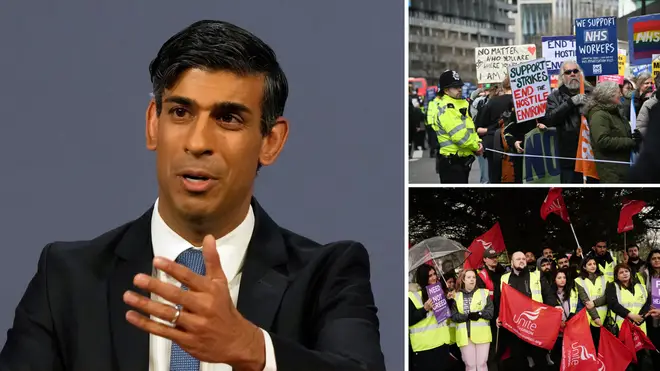
Rishi Sunak has accepted the recommendations from all pay review bodies, meaning teachers, junior doctors, and police officers are set to receive a pay rise.
The offers come despite concerns pay rises may fuel inflation.
The government is not expected to borrow any money to fund the pay increases, forcing the public sector to find savings within departments.
The prime minister said money could be raised by increasing the cost of visa applications and NHS access for migrants.
Mr Sunak has also made clear the offers represent the final attempt by the government to resolve ongoing pay disputes, urging unions to accept the terms.
But how much are public sector workers going to get? Here is a full breakdown.
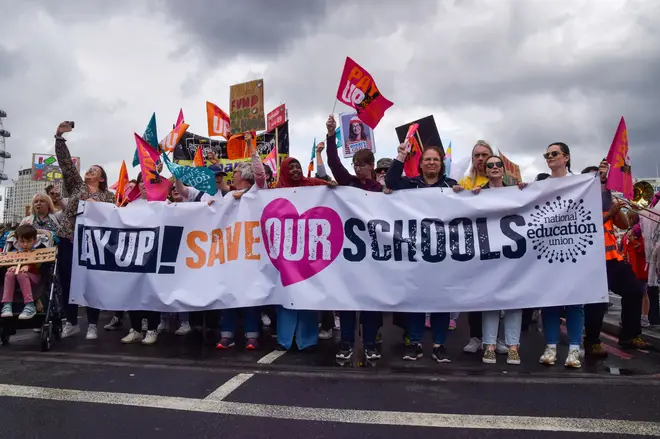
Teachers are expected to be given a 6.5 per cent pay rise in an attempt to stave of further strike action.
Thousands of students have been affected by teachers' strikes in recent months, including Wednesday and Friday last week.
Following the announcement, Mr Sunak issued a joint statement alongside four teachers unions, who announced they would be calling off planned strikes.
Prime Minister Rishi Sunak and Education Secretary Gillian Keegan issued a joint statement on pay alongside the general secretaries of the four education unions - Mary Bousted, Kevin Courtney, Geoff Barton, Paul Whiteman and Patrick Roach - as well as the general secretary elect of the NEU, Daniel Kebede.
"This is the largest ever recommendation from the School Teachers' Review Body (STRB)," it said.
Read More: Junior doctors kick off summer of strikes with five days of action in biggest walkout in NHS history
"A 6.5% increase for teachers and school leaders recognises the vital role that teachers play in our country and ensures that teaching will continue to be an attractive profession.
"The Government has accepted the STRB's recommendation and has agreed to bring forward wider reforms to reduce teacher and leader workload in partnership with all four unions.
""Importantly, the Government's offer is properly funded for schools. The Government has committed that all schools will receive additional funding above what was proposed in March, building on the additional £2 billion given to schools in the Autumn Statement.
"The Government will also provide a hardship fund of up to £40 million to support those schools facing the greatest financial challenges.
"ASCL, NAHT, NASUWT and NEU will now put this deal to members, with a recommendation to accept the STRB recommendation. This deal will allow teachers and school leaders to call off strike action and resume normal relations with Government."
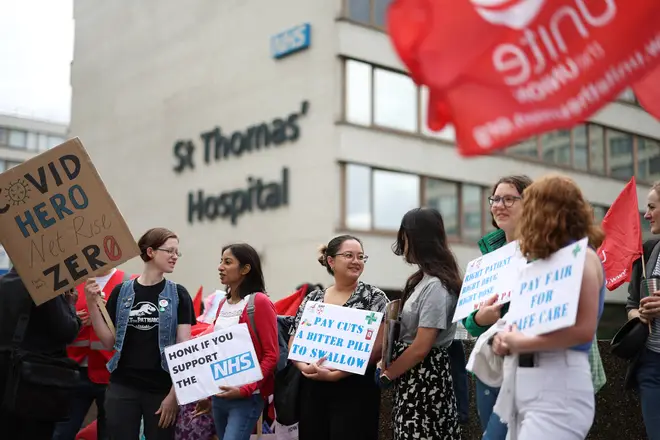
Meanwhile, junior doctors - who are on strike across the country today - have been offered a six per cent pay rise.
Doctors started the industrial action at 7am on Thursday and it will last until the same time on Tuesday.
Junior doctors have previously called for a 35 per cent pay rise, which Health Secretary Steve Barclay has called a "non-starter".
The British Medical Association (BMA) has already rejected a five per cent pay offer from the government.
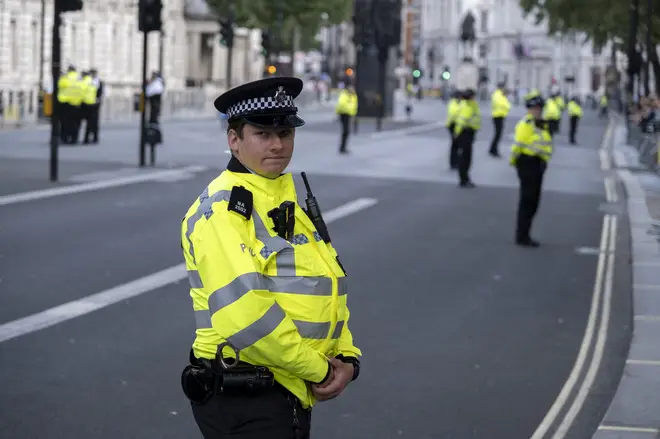
In recent months, junior doctors and teachers have both taken part in large-scale industrial action.
But for the police and prison officers, the rules are different.
In the UK, police officers are banned from taking strike action under the Police Act 1996.
Meanwhile, prison officers are also banned from striking under the Criminal Justice and Public Order Act 1994.
In any case, both have been offered seven per cent pay rises.
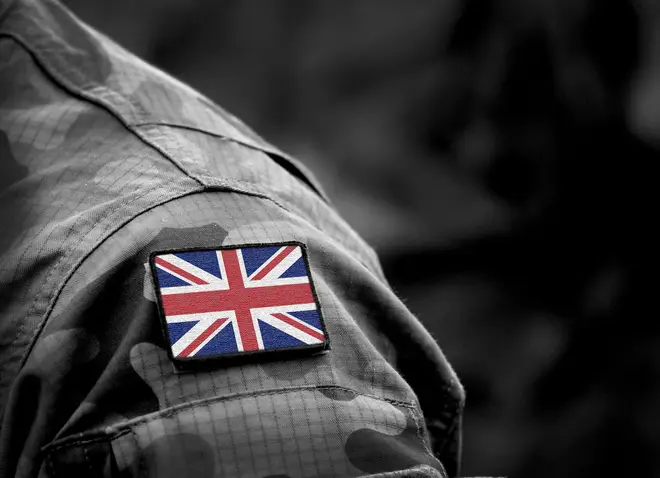
Finally, the armed forces.
Like police and prison officers, soldiers are not allowed to go on strike.
They have been offered a five per cent pay rise.
Civil servants and railway staff have not been included in the pay offers.
